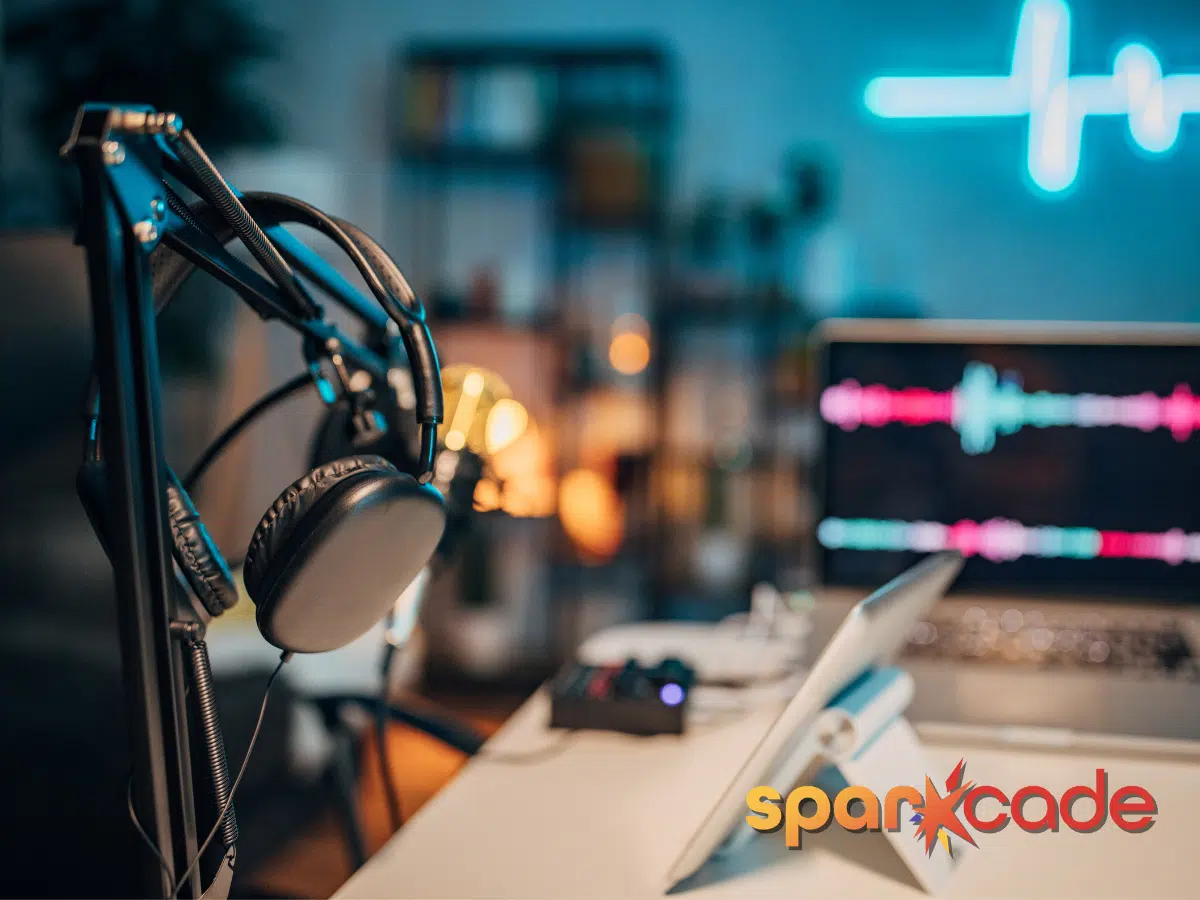Most podcasts don’t make it past episode seven. Not because the ideas aren’t strong or the audience isn’t there, but because the work involved can be overwhelming. Between planning, scripting, recording, editing, publishing, and promoting, building a quality podcast takes serious time and resources.
For many teams, that complexity becomes a roadblock. But AI in podcasting is helping change the equation. With the right approach and tools, AI can reduce friction, speed up production, and make podcasting more accessible—even for small teams or solo creators.
Here’s how AI is reshaping the podcast production process … and where human perspective still makes all the difference.
Strategy Comes Before Software
Before opening any AI tool to assist with your podcast, the foundation has to be clear: Who is the podcast for? What’s the message? What is the listener supposed to take away, or do, after hearing it?
Using AI in podcasting offers countless shortcuts for editing, formatting, and content generation. But it can’t decide what matters. It can’t choose a tone of voice or align the show with broader business goals. The strategy has to come first.
Without a clear purpose, even the most efficient AI-generated content can feel directionless. Podcasting that performs—whether in brand storytelling or lead generation—begins with defining the audience, the goal, and the voice. AI can amplify a message, but it can’t create meaning on its own.
Streamlining the Process with AI
Once your strategy is solid, AI becomes a powerful production assistant. With the right tools, common time sinks like editing out filler words, leveling audio, transcribing interviews, or pulling clips for promotion can all be dramatically streamlined.
Tools like Riverside, Descript, and ChatGPT are leading this shift. They allow creators to generate transcripts, polish audio, auto-remove hesitations, and even create draft episode descriptions and show notes in a fraction of the time it used to take.
While AI tools can help you move past the blank page so much faster than before, this kind of support isn’t replacing your creative process … rather, it’s removing barriers to your success so you can keep things moving and focus on your content and strategy.
The Power of the Prompt
A recurring theme with AI in podcasting—and other areas—is the importance of high-quality input. Generative tools don’t work well on vague requests … they need detailed, contextual prompts that point them in the right direction.
This is where prompt engineering comes in. Giving tools like ChatGPT clear constraints, layered context, or even assigning them a persona helps generate output that feels aligned with the brand, the episode theme, or the host’s voice. It’s not about outsourcing creativity … it’s about giving AI the information it needs to assist creatively.
The better the prompt, the better the results. But AI still needs a guide.
Where AI Can’t Go Alone
Despite the speed and support AI brings, some aspects of podcasting can’t, and shouldn’t, be automated. One of the most important is tone. AI might be able to mimic language, but it doesn’t understand nuance, empathy, or audience dynamics.
Podcasting is a relationship-driven format. Listeners return because they trust the host, connect with the voice, and believe in the message. That trust can’t be generated by an algorithm … it’s earned over time.
Tools can handle the technical edits, but they can’t sense when a question needs to be rephrased or when a pause adds impact. They can’t hear what’s missing in a guest’s answer. Those are human decisions.
AI in podcasting works best when it’s supporting—not replacing—the instincts that come from experience.
The Real Benefit: More Space to Create
When AI handles the heavy lifting, it frees up time for the work that actually makes a podcast succeed: developing thoughtful topics, refining interview questions, or engaging listeners beyond the episode itself.
This is especially valuable for content teams or solo creators juggling multiple priorities. The less time spent on post-production, the more energy can go toward telling a story that connects … or building a series that aligns with a larger marketing strategy.
Want to See What’s Possible? Let’s talk
AI in podcasting can help you wear every hat—strategist, producer, host, editor, marketer—but that doesn’t mean you have to wear them all at once, or alone. What matters more is using these tools with purpose.
The truth is, there’s no one-size-fits-all approach to implementing AI. Some teams will dive deep into automation. Others will just use it to speed up their transcripts or rough out episode summaries. What works depends on your goals, your workflow, and your bandwidth.
But no matter how you use it, AI is not a replacement for your voice, your story, or your strategy. It’s a tool to help you move faster, create more confidently, and focus on the things that actually grow your audience.
At Sparkcade, we’ve helped clients at every stage of the podcasting journey—from early concept to full-scale production—and we’re always looking ahead at what’s next. If you’re curious about how to make AI part of your podcasting workflow, or just want to see what’s possible, let’s talk.


Leave A Comment